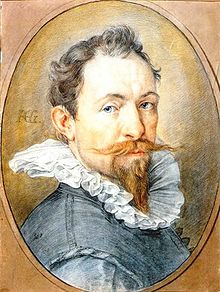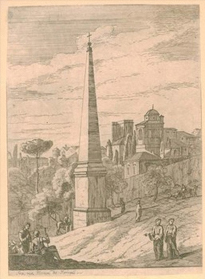Details
Additional Information
| SKU | XXAB144 |
|---|---|
| Picture Size | 19 by 13,50 cm |
| Specification | |
| technic | Engraving |
| Artist | Jan Saenredam |
| period | 16th Century |
| School | Dutch |
| subject | Religious |
| rating | **** |
Jan Saenenredam (1565-1607) - Dutch School
Engraver born in Zaandam, c. 1565. Orphaned in childhood, he was raised by an uncle, Pieter de Jongh, a bailiff in Assendelft. Though brought up for a life of farm labour and handiwork, he turned to drawing and in time attained some success as a mapmaker. With the help of a local lawyer, he entered the circle of Hendrick Goltzius relatively late in life, in 1589, and worked for short periods with both Goltzius and Jacques de Gheyn II. Saenredam was one of Goltzius' most important masters and worked closely with him, creating a major body of work. According to both de Bie and Schrevelius, there was some rivalry between each of these masters and Saenredam, who quickly absorbed what they had to offer him. About 1595 Saenredam returned to Assendelft, where he married and where his son Pieter, who later became famous for his paintings of the interiors of churches, was born. He died in Assendelft in 1607.
Inventor
Hendrick Goltzius (1558-1647)
 Dutch printmaker, draftsman, and painter. He was the leading Dutch engraver of the early Baroque period, or Northern Mannerism, noted for his sophisticated technique and the "exuberance" of his compositions. Goltzius was born near Venlo in Bracht or Millebrecht in North Rhine-Westphalia. His family moved to Duisburg when he was 3 years old. After studying painting on glass for some years under his father, he learned engraving from the Dutch polymath Dirck Volckertszoon Coornhert, who then lived in Cleves. In 1577 he moved with Coornhert to Haarlem. In the same town, he was also employed by Philip Galle to engrave a set of prints of the history of Lucretia. Goltzius had a malformed right hand from a fire when he was a baby which turned out to be especially well-suited to holding the burin; "by being forced to draw with the large muscles of his arm and shoulder, he mastered a commanding swing of line.
Dutch printmaker, draftsman, and painter. He was the leading Dutch engraver of the early Baroque period, or Northern Mannerism, noted for his sophisticated technique and the "exuberance" of his compositions. Goltzius was born near Venlo in Bracht or Millebrecht in North Rhine-Westphalia. His family moved to Duisburg when he was 3 years old. After studying painting on glass for some years under his father, he learned engraving from the Dutch polymath Dirck Volckertszoon Coornhert, who then lived in Cleves. In 1577 he moved with Coornhert to Haarlem. In the same town, he was also employed by Philip Galle to engrave a set of prints of the history of Lucretia. Goltzius had a malformed right hand from a fire when he was a baby which turned out to be especially well-suited to holding the burin; "by being forced to draw with the large muscles of his arm and shoulder, he mastered a commanding swing of line.All the items are guaranteed to be originals and as described.
A letter of authenticity is added by simple request.
Items may be returned within 15 days after arrival.
I ship worldwide and provide Insurance and other delivery options.
All items can be purchased instantly at the listed prices,
on reservation of errors in price or availibility..






 Facebook
Facebook Twitter
Twitter Subscribe us
Subscribe us Flickr
Flickr




